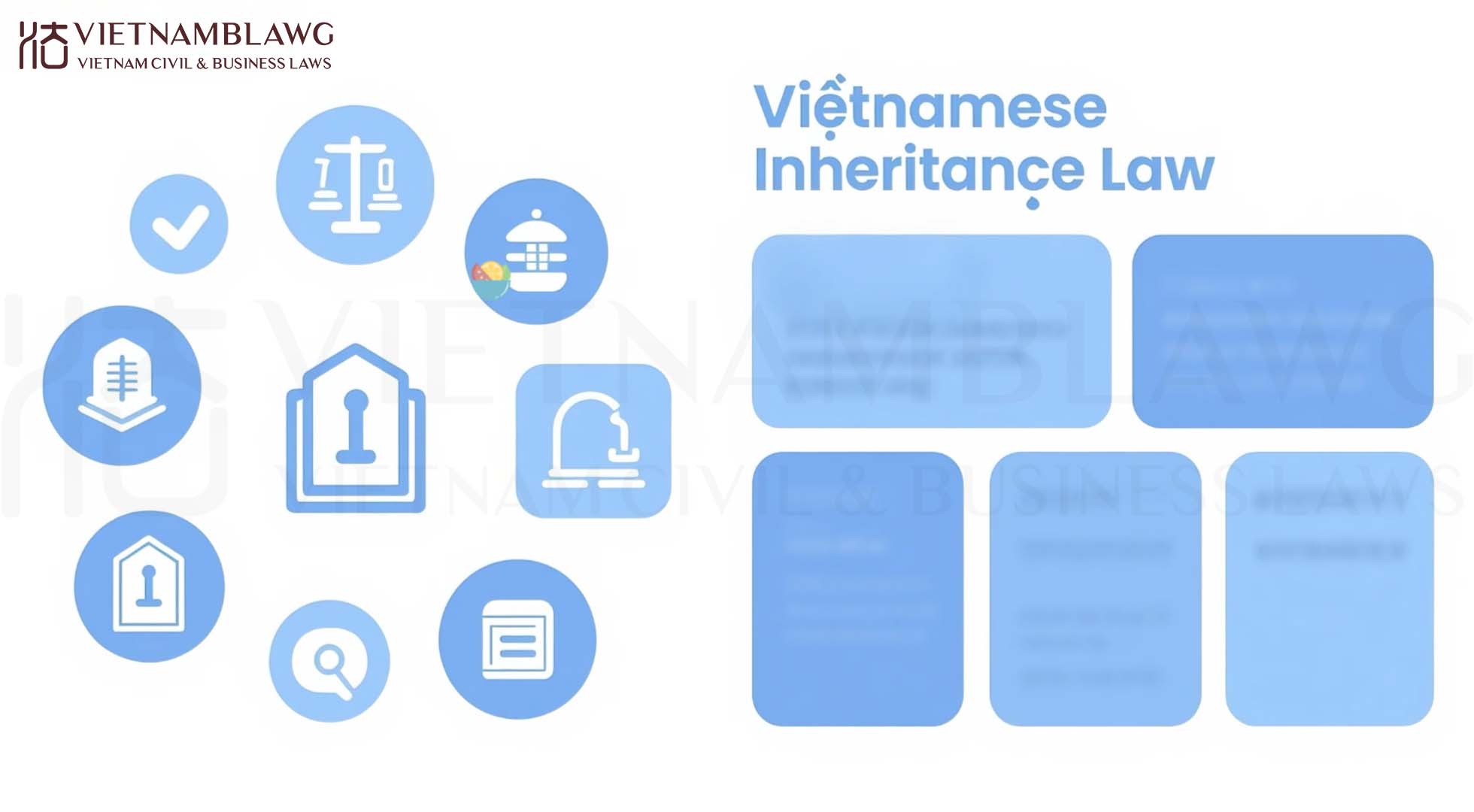Vietnamese inheritance law is provided in Article 609 to Article 662 of Vietnam Civil Code which was passed by Vietnamese congress in 2015 but came into effect as from January 1, 2017.
We will briefly introduce the basic legal framework of Vietnamese inheritance regime for purpose of enabling overseas Vietnamese or foreigners who may still have assets in Vietnam that may be the subject matter of inheritance when a family member dies or otherwise becomes a beneficiary of a will bequeathing estates in Vietnam.

I. Who are the Heirs?
Aticle 613 of Vietnam Civil Code (2015) provides:
Người thừa kế là cá nhân phải là người còn sống vào thời điểm mở thừa kế hoặc sinh ra và còn sống sau thời điểm mở thừa kế nhưng đã thành thai trước khi người để lại di sản chết. Trường hợp người thừa kế theo di chúc không là cá nhân thì phải tồn tại vào thời điểm mở thừa kế.
Article 613 of Vietnam Civil Code
It seems that Vietam inheritance law embraces a broader concept of "heirship" from this provision, in particular, the "person to inherit" includes non-natural persons, namely, legal persons, which is not common to the best of our knowledge.
The idea of an heir being the fetus is however pretty common in many jurisdictions.
II. Obligation to Pay Liabilities of the Deceased
Article 615 of Vietnam Civil Code says:
1. Những người hưởng thừa kế có trách nhiệm thực hiện nghĩa vụ tài sản trong phạm vi di sản do người chết để lại, trừ trường hợp có thoả thuận khác.
2. Trường hợp di sản chưa được chia thì nghĩa vụ tài sản do người chết để lại được người quản lý di sản thực hiện theo thoả thuận của những người thừa kế trong phạm vi di sản do người chết để lại.
3. Trường hợp di sản đã được chia thì mỗi người thừa kế thực hiện nghĩa vụ tài sản do người chết để lại tương ứng nhưng không vượt quá phần tài sản mà mình đã nhận, trừ trường hợp có thoả thuận khác.
4. Trường hợp người thừa kế không phải là cá nhân hưởng di sản theo di chúc thì cũng phải thực hiện nghĩa vụ tài sản do người chết để lại như người thừa kế là cá nhân.
This is a fair and common provision in any inheritance law. A person's liabilities won't just die with the body of the debtor but with his or her assets.
An heir, including the aforesaid non-natual person heirs, receiving estate is subject to the liabilities to the extent of the amount of estates to be or having inherited, except as otherwise agreed by the creditors and the heirs.
This Article shall be read together with Article 658 in relation to the sequence of prioritizing payments for varios liabilities and costs in the course of completing an inheritance.
III. Estate Administration in Vietnam
Vietnam inheritance law places provisions related to administration of estates in the "general provisions" part of the law, instead devoting a separate chapter for it, as many other jurisdictions do.
First of all, Vietnam inheritance law provides for three types estate administrators:
- the one appointed in a will or elected by all heirs upon consultation. This is the normal type of estate administrator familar with a similar concept in other jurisdictions;
- where there is no administrator appointed by a testator or elected by heirs, then those person possessing, using, managing estates shall continue managing such estates till an administrator is elected by heirs;
- if no administrator is decided according to the above, then pertinent government department shall be the administrator.
The role of an estate administrator under Vietnamese inheritance law is clearly provided to be the representative of the heirs. Subparagraph (1) of paragraph 1 of Article 618 says:
Đại diện cho những người thừa kế trong quan hệ với người thứ ba liên quan đến di sản thừa kế
The legal nature of an estate administrator is quite contraversial. In most common law jurisdictions, an estate administrator is called a "personal representative", but not very clear about being representative for whom: the deceased or the heirs. However this is more a question for academic discussion for us legal practitioners.
The obligations of an estate administrator include the following:
- make an inventory of estates, take back assets in the possession of others except as otherwise prescribed by law;
- keep custody of estates, without consent of the heirs in writing, shall not sell, exchange, gift, pledge or mortgage or otherwise dispose of the estates;
- notify heirs of the estates;
- compensate any loss sufferred due to his or her violation of her obligations;
- return estates as per requests from heirs.
Right to remuneration is confirmed by the law, which is permitted to be agreed with the heirs or a reasonable amount otherwise determined by courts.
IV. Circumstances where Heirs Lose Right to Inherit
This is also a part and parcel of any inheritance law to ensure inheritance doesn't carry with it serious moral hazards.
In the following circumstances, a person shall lose its right to inherit the estates left by the deceased:
- convicted of a crime involving intentional infringement of the life, heath of the deceased or seriously mistreat, torture the deceased, or seriously damages the reputation and personam of the deceased;
- in serious violation of obligation of maintaining and supporting the deceased;
- convicted of a crime involving intentional infringement of the life of other heirs with a view to acquiring part or entire portion of estate the said other heirs are entitled to;
- commit acts of fraud, coersion or prevention in respect of creating a will by the deceased, or against the volition of the deceased, fabricate, modify, destroy or conceal a will made by the deceased with a view to acquiring part or whole of the estates.



Comments